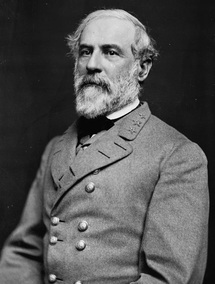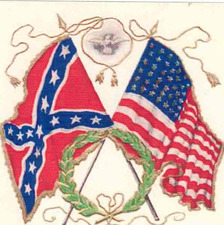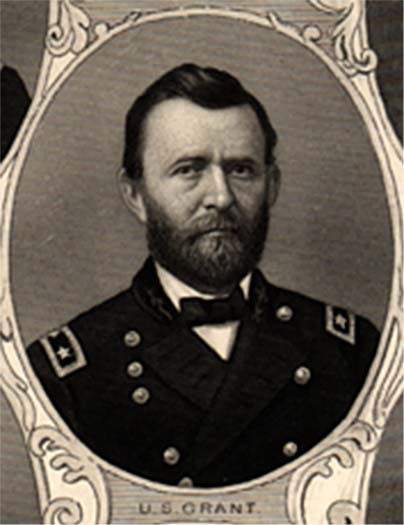Lincoln believed that preserving the Union was his moral duty as commander in chief, and that it was the most important contribution that he could make to the future of the nation during his term of presidency. Lincoln stated his purpose quite clearly in his letter written to Horace Greeley, editor of the New York Tribune, in response to an article entitled “The Prayer of Twenty Millions," which implied that Lincoln's administration lacked direction and resolve.
At the time, a draft of the Emancipation Proclamation already lay in his desk drawer. A few years after the president's death, Greeley wrote an assessment of Lincoln. He stated that Lincoln did not actually respond to his editorial but used it instead as a platform to prepare the public for his "altered position" on emancipation. Lincoln wrote:
“… As to the policy I "seem to be pursuing" as you say, I have not meant to leave any one in doubt.
“I would save the Union. I would save it the shortest way under the Constitution. The sooner the national authority can be restored; the nearer the Union will be "the Union as it was." If there be those who would not save the Union, unless they could at the same time save slavery, I do not agree with them. If there be those who would not save the Union unless they could at the same time destroy slavery, I do not agree with them. My paramount object in this struggle is to save the Union, and is not either to save or to destroy slavery. If I could save the Union without freeing any slave I would do it, and if I could save it by freeing all the slaves I would do it; and if I could save it by freeing some and leaving others alone I would also do that. What I do about slavery, and the colored race, I do because I believe it helps to save the Union; and what I forbear, I forbear because I do not believe it would help to save the Union. I shall do less whenever I shall believe what I am doing hurts the cause, and I shall do more whenever I shall believe doing more will help the cause. I shall try to correct errors when shown to be errors; and I shall adopt new views so fast as they shall appear to be true views.
“I have here stated my purpose according to my view of official duty; and I intend no modification of my oft-expressed personal wish that all men everywhere could be free.”
Whether or not the secession of states within the Union is legal, can (and has been) argued both ways. It was the position of the seceding states that as they had joined the Union voluntarily, and had not willingly surrendered their sovereignty to the Federal Government, they retained the right to withdraw from the Union at such time as they felt it no longer represented their interests.
United States President James Buchanan, Fourth Annual Message to Congress on the State of the Union December 3, 1860: "The fact is that our Union rests upon public opinion, and can never be cemented by the blood of its citizens shed in civil war. If it can not live in the affections of the people, it must one day perish. Congress possesses many means of preserving it by conciliation, but the sword was not placed in their hand to preserve it by force."
Also, former President of the United States Thomas Jefferson, in a letter to William H. Crawford, Secretary of War under President James Madison, on June 20, 1816: "In your letter to Fisk, you have fairly stated the alternatives between which we are to choose : 1, licentious commerce and gambling speculations for a few, with eternal war for the many ; or, 2, restricted commerce, peace, and steady occupations for all. If any State in the Union will declare that it prefers separation with the first alternative, to a continuance in union without it, I have no hesitation in saying, 'let us separate'. I would rather the States should withdraw, which are for unlimited commerce and war, and confederate with those alone which are for peace and agriculture."
However, it was the opinion of Abraham Lincoln and those in agreement with him, that the language of the Constitution implied the joining of the states in the Union “to perpetuity.” In his first inaugural address, Lincoln stated: “If the United States be not a government proper, but an association of States in the nature of contract merely, can it, as a contract, be peaceably unmade by less than all the parties who made it? One party to a contract may violate it—break it, so to speak—but does it not require all to lawfully rescind it? Descending from these general principles, we find the proposition that in legal contemplation the Union is perpetual confirmed by the history of the Union itself…”
It is also interesting to note that earlier in the very same speech he had also declared: “Apprehension seems to exist among the people of the Southern States that by the accession of a Republican Administration their property and their peace and personal security are to be endangered. There has never been any reasonable cause for such apprehension… I have no purpose, directly or indirectly, to interfere with the institution of slavery in the States where it exists. I believe I have no lawful right to do so, and I have no inclination to do so.”
His letter to the editor of the New York Tribune explained the basis for his change of opinion. He would do absolutely whatever was necessary to keep the “States of the Rebellion” within the Union. To this end, he succeeded, but at the cost of approximately 620,000 United States Citizens, and the decimation of the South through Sherman’s “scorched earth” total warfare, which was approved by the President.
At the onset of the war, certainly neither the North nor the South knew what they were getting into. They both believed that the matter would be quickly resolved. And once invested in the fight, neither were willing to surrender.
The questions which I find myself mulling over are these:
Was the preservation of the Union worth the cost of so many lives, the destruction of American property and the rift which was permanently driven between the North and the South?
Was there not a better way to resolve the conflict than to keep fighting once the war lingered on? In 1864, there was a push for negotiated peace, with or without securing Union victory, in order to bring an end to the war and the steadily growing loss of human life. The Democratic Party was split on the issue, which was how Lincoln was able to secure a victory and the war continued.
What is the worst thing that might have happened if the South had been allowed to create their own sovereign nation? Slavery would have come to an end eventually, and as Lincoln stated at the outset, he did not enter the war to abolish it. This desire developed later out of political expediency to achieve his higher goal of retaining the Union at all costs.
Are we better off today for having been subjugated by the Federal Government and having accepted the verdict declared by force that the states do not have the right to secede? And is there an appropriate balance between the power of the Federal Government and the rights of the states?
I’m just a novelist, and this is the direction of thought my research has taken me. What do you think?




 RSS Feed
RSS Feed